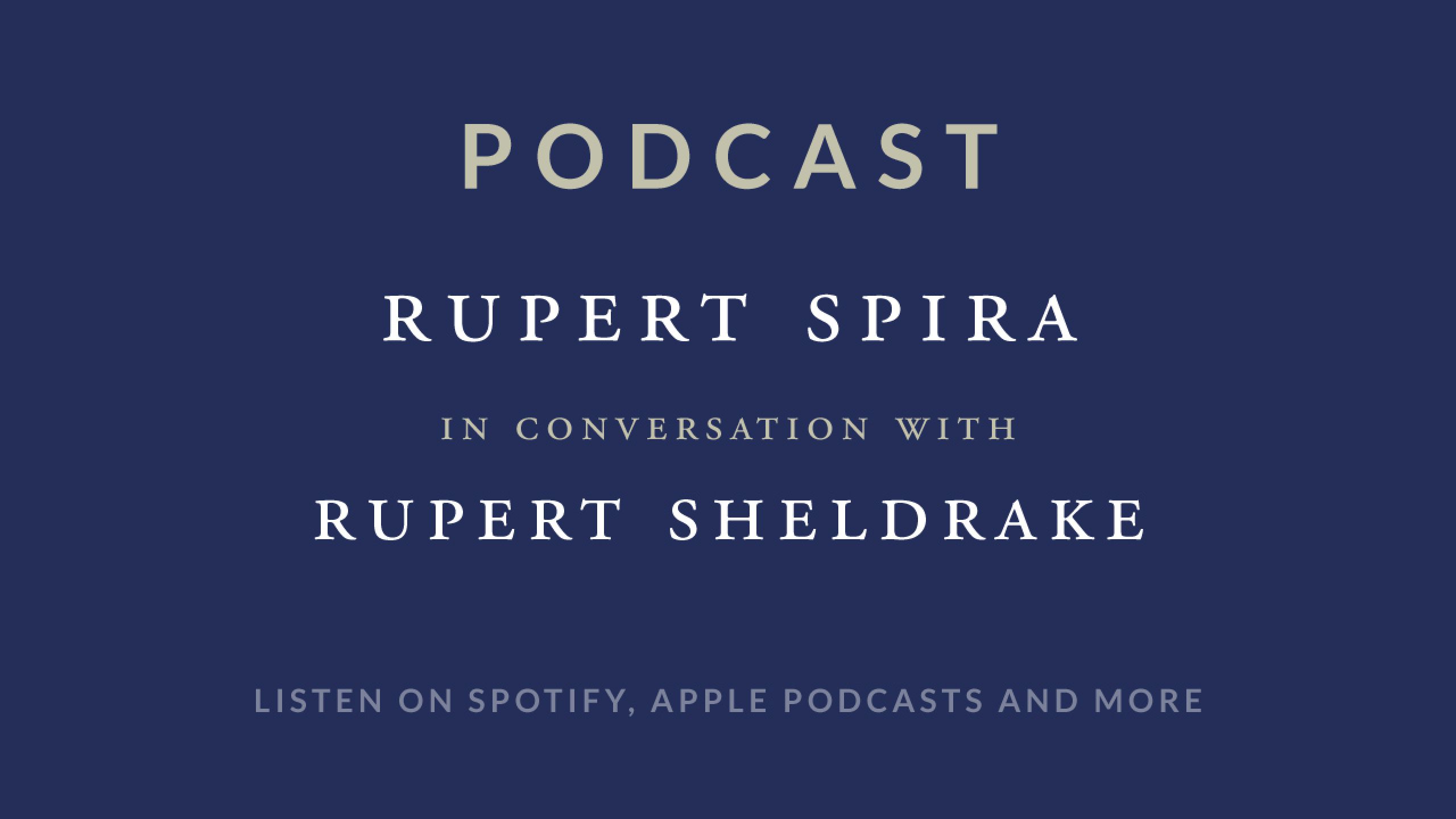They discuss the nature of reality, looking beyond their two very different models and forms of expression in order to discover a common understanding.
The discussion starts by considering the ideas of three Western philosophers: the pre-Socratic philosopher Parmenides; the contemporary scientist and philosopher Bernardo Kastrup; and the eighteenth-century idealist George Berkeley.
Rupert Spira explains how his conclusions about the nature of reality are essentially the same as that of Parmenides and Bernardo Kastrup: there is one single reality from which all entities and objects derive their apparent existence. He regards the universe as the activity of consciousness, not an entity made out of matter. It appears to be made out of matter only from the perspective of a localised mind in that world. They discuss the differences between this understanding and Berkeley’s philosophy.
Rupert Sheldrake, who comes from a Christian background, sees the ultimate reality as trinitarian: God, the Father can be seen as universal consciousness, the ground of being that underlies all things; Christ or Logos, is the world of names and forms, mental constructs; and the Holy Spirit is manifested as energy and movement. The Godhead is the ultimate reality, prior to diversification into the Holy Trinity.
Both agree that nothing other than the ultimate reality, the Godhead, ever comes into existence. There’s no independent source of being. As the Bhagavad Gita says: ‘That which is, never ceases to be; that which is not, never comes into existence’. The Godhead is immanent as all forms, but it has no form.
Rupert Spira suggests that the pure, unqualified ‘I am’ is God’s presence that shines in all minds. In most cases the knowledge ‘I am’ or the ‘feeling of being’ is mixed with or qualified by our experience. So most people feel ‘I am a man or a woman’, ‘I am this many years old’ and so on. But the pure ‘I am’, divested of all these qualifications, is God’s presence. In other words, the only self there is, is the Self of God. The apparent human being is a limitation or clothing of God’s infinite being.
Rupert Sheldrake goes on to suggest that there are different levels of awareness of this I am-ness. Animals have some kind of awareness, maybe plants and stars do too? If they do, then ‘I am’ would be the basis of that awareness. In contrast, Rupert Spira’s view is that only awareness is aware.
After discussing whether or not the process of self-recognition takes place in a person, they agree that all experience is consciousness clothed in name and form. Everything and everyone is a clothing of consciousness. Therefore, however consciousness is manifesting itself, it has the possibility of divesting itself of name and form and recognising itself.
The discussion ends with both agreeing on the fundamental conclusion that we share our being with everything and everyone.
You can listen to this episode on the Rupert Spira Podcast.
https://rupertspira.libsyn.com/episode-11-rupert-sheldrake
If you enjoyed this conversation, we think you'll like Rupert's conversation with Dr. James Cooke

